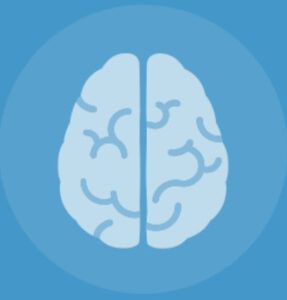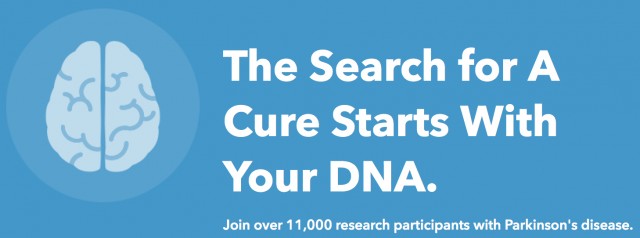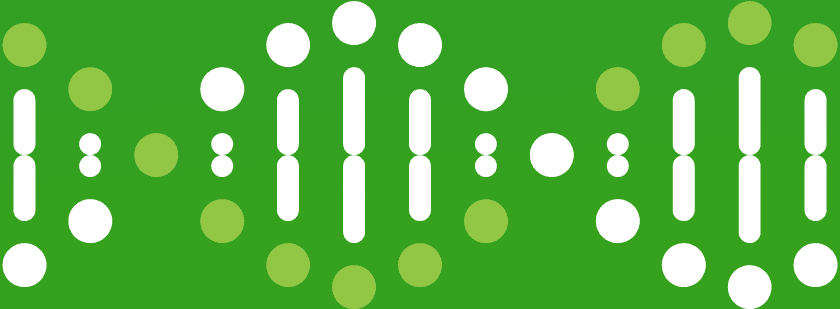April is Parkinson’s Awareness Month and this year it also marks the eighth anniversary of 23andMe’s Parkinson’s Research Community,
 which introduced a game-changing model for science, one that leverages online tools and is powered by average, everyday people — people like you.
which introduced a game-changing model for science, one that leverages online tools and is powered by average, everyday people — people like you.
Parkinson’s Awareness Month also comes on the heels of an FDA authorization for 23andMe to offer several Genetic Health Risk Reports to customers, including one on genetic risk for Parkinson’s Disease. Genetics is one of many factors that influence a person’s chance for developing Parkinson’s disease. 23andMe’s new Parkinson’s Disease Genetic Health Risk Report looks at two of the most common variants associated with significantly higher risk for the disease LRRK2 G2019S, and GBA N370S.
Putting this information into the hands of individuals is important for them personally, but it can do so much more. It can trigger the sort of engagement that powers important research as 23andMe has seen with the Parkinson’s Research Community, which now includes more than 11,000 people and is the world’s largest study cohort of genotyped individuals with Parkinson’s.
The community has powered important research from the beginning, first helping to replicate known genetic associations for Parkinson’s and then leading researchers to find never before known associations. Beyond that work 23andMe has also joined in hugely important ongoing collaborations — with organizations like the Michael J. Fox Foundation — which are helping lead to important insights and valuable data for future research.
Right now 23andMe is working on a new research effort with The Michael J. Fox Foundation (MJFF), and we expect to announce more details about the program later this year. In the meantime, we strongly encourage people interested in supporting or participating in Parkinson’s research to learn more about the MJFF’s Fox Insight program.
For people with Parkinson’s or those who love them, the research done through the 23andMe Parkinson’s Research Community and its collaborators offers something else — a chance to make a difference. This is a true human desire. Not all of us have the resources or skills to do the science, but we all have the ability to offer what may be even more valuable, our interest and participation. As Thelma, the wife of one of our research participants, told us a few years ago, participating in research offered her a chance to make a difference.
“I have six grandchildren … and I don’t want (Parkinson’s) to befall them,” she said. “This is something I can do for them as well.”
Engaging people like Thelma is part of what 23andMe does well, but we offer something else too.
Even individuals who do not have a specific condition, who are healthy and are not personally touched by some of the health conditions we study, can help by simply consenting to research. Having aggregated data from healthy individuals for which to compare is important for disease research.
In addition, some individuals who remain healthy their whole lives, even though they have the variants that put them at a higher risk, could also offer researchers valuable information in their study of Parkinson’s and other neurodegenerative diseases. In fact, some scientists are starting to hypothesize that developing interventions before someone is symptomatic could be key to prevention or more effective treatment for some neurodegenerative diseases.
One powerful way to study this hypothesis is to identify people with specific risk factors – like genetics – to focus on in future studies.
The ability for people to participate in research and become engaged in this kind of work is game changing, said 23andMe co-founder and CEO Anne Wojcicki.
“What gets me up every day is the excitement of our potential for research and the opportunity to advance science and understanding of the underlying biology of conditions like Parkinson’s disease,” she said.




